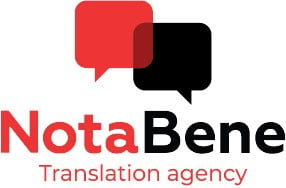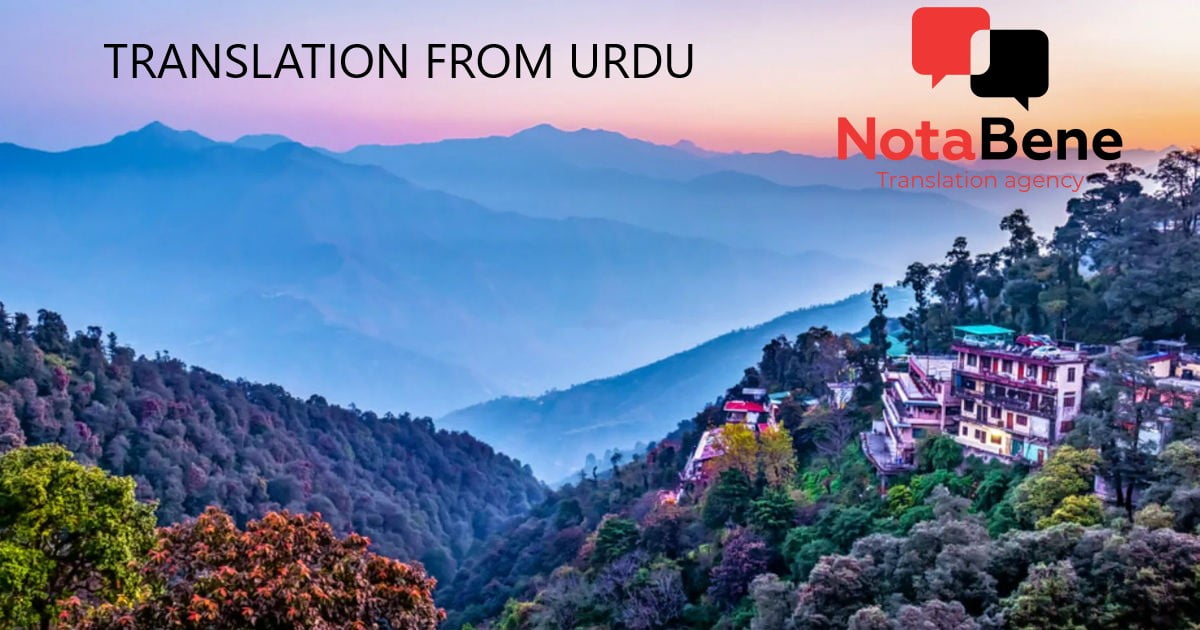Order translation from Urdu or into Urdu at NotaBene Agency in Warsaw and Gdansk!
NotaBene Translation Agency is an experienced supplier of translation from Urdu into Polish and vice versa for any documents or texts.
What types of texts does NotaBene Translation Agency work with?
– Technical translation from Urdu — we translate any texts in electronics, aviation and shipbuilding, agriculture, industry, oil and chemistry, etc. For this purpose, we pick translators who understand the specific nature of a given industry.
– IT translation from Urdu for the localization of applications, games, software and websites.
– Medical translation from Urdu — books, manuals, articles in specialized printed and online publications, clinical records, correspondence with medical institutions, transcriptions and translations of test results, instructions for medicines and many other types of texts. This kind of translation requires flawless knowledge of medical terminology and focus on detail to rule out ambiguity, because the result can affect the health or life of many people.
– Legal translations from Urdu: statutes, registration deeds, articles of incorporation, contracts, powers of attorney, court records and many other similar documents.
– Financial translation from Urdu includes the translation of balance sheets, tax returns, payment invoices, waybills, tender documents, etc.
– Literary or fiction translation from Urdu of fiction, marketing and advertising materials. Unlike the previous types of translation, in this case there is more room for a translator’s creativity, because there is no need for “word for word” translation. The most important thing is that the translated material produces the same impact as the original, while an excellent translation may even make it better.
Please note that the translation mentioned is certified by an agency seal only. If you need sworn translation, kindly notify your manager in advance. Sworn translation is possible only for certain languages.
How to have a translation from Urdu into English, Polish, Russian, Belarusian or Ukrainian?
First of all, you need to order it. To do so, send your source text and specify your requirements for the translation from Urdu. A customer service specialist at the Nota Bene Translation Agency will prepare a ToR based on the specific features of the order. If the project involves more than one job, a unique glossary is created to ensure the consistency and proper use of terminology.
An entire team of several professionals normally works on a job: a translator, proofreader, editor, quality controller, layout designer and manager who will be available during working hours. In order to rule out human errors, the translation agency uses modern services to check punctuation, idioms, numerical expressions, and formulas. The material is also reviewed by the chief editor.
Confidentiality of translated data is ensured by a special NDA, whenever a customer wishes to have one. Documents can be delivered to any country.
We very rarely apply additional fees for “urgency” or “specialized subjects”, so you can be sure that the price will not rise when the project is delivered. It is true that in rare cases, such as “we need to have it yesterday” instances, and when a customer is willing to pay a higher rate for the team to work outside normal working hours, at night or on weekends, the fee might be increased, but this is always negotiated with the customer in advance.
Urdu
The name of the Urdu language (Urdu اردو) is a short phrase زباناردوئےمعلى (zabān-iurdū-yimuʿallā) “the language of the lofty city (Delhi)”. The local name of the language is “Lashkari”(لشکری), which is short for Lashkari Zaban (لشکرزبان)
During the reign of the Great Moguls, Persian (Farsi) was the official language. It was only after the British conquest that Hindustani (of the variety known as Hindi, Hindawi or dehlavi, or the Delhi dialect) became the official language, then written in Arabic letters (by both Muslims and Hindus). The fact that the country’s main language officially used the Arabic alphabet caused discontent among Hindus, who spoke Hindustani and used the Devanagari script.
They formed their own version of Hindustani — Hindi, which was declared the official language in the state of Bihar in 1881. Since then, the legal separation of the Hindi (for Hindus) and Urdu (for Muslims) languages emerged, but some Hindi poets continued to write in Urdu (using the Arabic script), for example, Gopi Chand Narang and Gulzar. Upon partition of British India, Urdu was adopted as the official language in Pakistan, which imbibed strong influences from Persian.
Globally, between 40 and 60 million people view Urdu as their mother tongue; the number of speakers, including as a second language as of 1999, was 104 million. Most users live in India and Pakistan.
In Pakistan, notwithstanding the small proportion of people for whom Urdu is a native language (about 7% of the country’s population in total, most of whom are Muhajirs who came from India because of religious persecution), the language has the official status. To a greater or lesser extent, Urdu is understood by the majority of the Pakistani population, and it is widely used as a lingua franca, as well as in the education system. Urdu is a compulsory subject in all colleges in the country, regardless of the language of instruction.
This has led to people often being able to read and write in Urdu, but unable to do so in their native language. The close ties between Urdu and the regional languages of Pakistan contribute to their cooperation and mutual enrichment. On September 8, 2015, the Supreme Court of Pakistan required administrative institutions to expand the use of Urdu (limiting the use of English where possible) and also set a three-month deadline for all provincial and federal laws should be translated into Urdu.
In India, the Urdu language is mainly spoken by Muslims. Urdu-speaking Muslim communities are found in many areas in the north of the country (the states of Kashmir, Uttar Pradesh, Bihar, Maharashtra, Madhya Pradesh, and the capital Delhi), as well as in all major cities of the country. Urdu is used as the language of instruction in some schools and is studied along with Arabic in Indian madrasas. There are more than 3,000 periodicals and non-periodical publications in Urdu in India, among them 405 daily newspapers. Urdu is one of the country’s 22 official languages; in addition, it has official status in some of the country’s northern states). In Bangladesh, the Urdu language is spoken by the so-called Bihar people.
We have been in business for over 20 years and during that time we have learned to work well. Trust us with your translation from Urdu and get a great result at a reasonable price!








